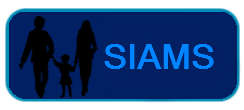SEND
Identifying pupils with SEND
The Graduated response to SEND is a model of action and intervention in schools and early education settings to help children who have been identified as having Special Educational Needs/Disability. The approach recognises that there is a continuum of SEND. Where necessary, increasing specialist expertise should be sought, to provide better support to cater for the difficulties that a child may be experiencing.
High quality teaching, differentiated for individual pupils, is the first step in responding to pupils who have or may have SEND. All teachers are responsible and accountable for the progress and development of the pupils in their class, including where pupils access support from Learning Assistants (LAs) or Inclusion Assistants (IAs). Class teachers regularly assess the pupils in their care. This involves clearly analysing the pupil’s needs, using the class teacher’s assessment and experience of working with the pupil, details of previous progress and attainment, comparisons with peers and national data, as well as the views and experience of parents.
When a class teacher identifies that a pupil has SEND – the class teacher completes a Pupil Profile with the Inclusion Hub, this includes progress and attainment data, anecdotal evidence and Standardised assessments in all areas of learning. If it is found that a pupil has an additional need, then the Inclusion Hub would devise a differentiated programme of support alongside the school’s usual differentiated curriculum offered:
- The class teacher remains responsible for working with the child on a daily basis. The Inclusion Leader will plan future interventions for the child and liaise with colleagues to monitor and review any action necessary
- The Inclusion Leader and class teacher, in consultation with parents, ask for help from external services. The class teacher and the Inclusion Leader are provided with advice or support from outside agencies
- SEN support takes the form of a cycle through which earlier decisions and actions are revised, refine and revised with a growing understanding of the pupil’s needs and of what supports the pupil in making good progress and securing good outcomes
Graduated approach to SEND Identification – (Assess, Plan, Do, Review)
Quality First Teaching
(Concerns Raised via Pupil Profile)
Pupil Profile)
Further investigation
( Class teacher and Inclusion Leaders – assessment, tracking, consultation with other staff etc.)
Class teacher and Inclusion Leaders – assessment, tracking, consultation with other staff etc.)
Planning
 (Initial SEND concerns meeting with family, Next steps identified, identifying long term outcomes, setting targets and writing Pupil Passports, consider referrals)
(Initial SEND concerns meeting with family, Next steps identified, identifying long term outcomes, setting targets and writing Pupil Passports, consider referrals)
Do
 (Implementing agreed actions – LAs/IAs to run intervention programmes, support in and out of class as appropriate)
(Implementing agreed actions – LAs/IAs to run intervention programmes, support in and out of class as appropriate)
Review
 (Evaluate impact of all actions – review passports, assessment and tracking etc.) Progress made or move to next step.
(Evaluate impact of all actions – review passports, assessment and tracking etc.) Progress made or move to next step.
Involve specialists
 (Seek additional advice and implement strategies)
(Seek additional advice and implement strategies)
Ongoing, if no progress over period of time may result in an application for EHCP.
Educational, Health and Care Plan (EHCP)
(Investigation, assessment and support from E.P.)
Early identification of pupils with SEND is considered a priority. To aid identification the school will use appropriate screening and assessment tools. To further assist with the identification of SEND needs the school will ascertain pupil progress through reference to:
- evidence arrived at by means of teacher observation/assessment
- referring to pupil performance in relation to the National Curriculum
- standardised screening /assessment tools
- pupil progress in relation to age related expectations
- social and emotional well-being of the child
The school uses this evidence to plan additional support for pupils with SEND. This is recorded, reviewed and amended half termly by the Inclusion Hub.
Update on the school’s implementation of the SEND system
Targeting support
Our approach is totally inclusive, validated by Ofsted Nov 19– pupils are provided with additional support to ensure that they can access the curriculum that is being delivered in the classroom through a wide range of reasonable adjustments.
Class support is characterised by interventions and actions that are different or additional to the normal differentiated curriculum. Class support intervention can be triggered through concern, supplemented by evidence and despite receiving differentiated teaching pupils continue to:
- Make little or no progress, this despite targeted teaching of weakness
- Demonstrate difficulty in developing literacy or numeracy skills
- Show persistent social, emotional or mental health difficulties which are not affected by behaviour management strategies
- Have sensory/physical problems and despite the provision of specialist equipment make little progress
- Experience communication and/or interaction problems and despite experiencing a differentiated curriculum makes little or no progress
School Support is characterised by the involvement of external services or confirmed diagnosis of need. External support services can be consulted to advise on targets for Pupil Passport and providing specialist inputs to the process. School Support intervention can be triggered through concern, supplemented by evidence and despite receiving differentiated teaching and support within the classroom the pupil is still not making satisfactory progress. Triggers may include:
- Pupil still makes little or no progress in many, or specific areas over a long period
- Pupil continues to work at expectations considerably lower than for a child of similar age
- Pupil continues to experience difficulty in developing literacy/numeracy skills
- Pupil has social, emotional and mental health difficulties, which often substantially impede pupil’s own learning or that of the group, this despite having an individualised behaviour regulation programme
- Pupil has sensory or physical needs requiring additional specialist equipment or visits/advice from specialists which is impacting on progress
- Pupil has ongoing communication or interaction problems that impede the development of social relationships, thus presenting barriers to learning
When external support services are approached, they will require access to pupil’s records in order to understand the strategies employed to date and targets set and achieved. The external specialist could provide specialist assessments and advice and possibly work directly with the pupil. The Pupil Passport that follows will, by necessity, incorporate specialist strategies whilst continuing to be implemented by the class teacher.
A range of reasonable adjustments are made to ensure that all pupils have an inclusive learning experience (see the Accessibility Plan for further detail), they include but are not limited to:
- Back tracking for success, filling gaps in knowledge and adapting scaffolding to ensure that pupils can access the mainstream learning learning
- Additional concrete resources to support learning e.g. Numicon
- Attachment awareness
- Dyslexia friendly approach
- SUCCESS approach for bespoke behaviour support
- Therapeutic behaviour support
- ASD strategies embedded in daily practice
- Reduced language interactions
- Visual timetables (First, next, then..)
- Writing slopes
- A hearing loop
- Enlarged resources/books to support pupils with VI
- A chairlift and ramps to provide access to the building
SEND Information Report Feb 24
Further information on the SEN reforms and changes can be found by following this link:
Special Educational Needs Information
Our SEN Policy can be found below:
What is the Local Offer?
The LA Local Offer:
- The Children and Families Bill became statutory in 2014. From this date, Local Authorities and schools are required to publish and keep under review information about services they expect to be available for the children and young people with Special Educational Needs (SEN) aged 0-25. This is the ‘Local Offer’.
- The intention of the Local Offer is to improve choice and transparency for families. It will also be an important resource for parents in understanding the range of services and provision in the local area.
- Further information about Stoke on Trent’s County Council’s Local Offer can be found here
Parents can find further information on Special Educational Needs and Disabilities in this DfE guide attached below:
SEND Guide for Parents and Carers
Latest News:
New Intake Meeting – Nursery and Reception September 2024
📌 We are holding a meeting for Parents/Carers of children who have been offered places in Nursery and Reception for September 2024. Please come along and join us on Tuesday 11th June at 9:30am. You’ll have the opportunity to chat …Continue reading
Sports Day 2024
Sports Day will take place on Wednesday 22nd May, at the following times: • Year 1 and Year 2 – 9:15 a.m. to 10:15 a.m. • Nursery and Reception – 10:45 a.m. to 11:45 a.m. • Year 3 and Year …Continue reading
Easter Fun at St Matthias
St Matthias Church would like to invite you to join them for a morning of Easter fun!
3 Steps to Change
🌎 Please see the link and QR code below to the 3 Steps to our Change Forms Survey: 3 Steps to Change Survey ♻️ The children and staff have started to complete it and …Continue reading
Sustainability Library Books
🌎 FOPS have very kindly donated funds to provide these beautiful books for our new Sustainability Section in the library. 🙏 Thank you to FOPS and everyone who supports their fundraising events. 🌈 #Team Priory #sustainablesbmat
Sustainability Update – Spring Term 2023/24
Last term, we made a great start in raising awareness about climate change and sustainability. We: appointed Advocates of Earth took part in the Pupil Parliament with St Bart’s MAT joined the National Education Nature Park took part in the …Continue reading


















